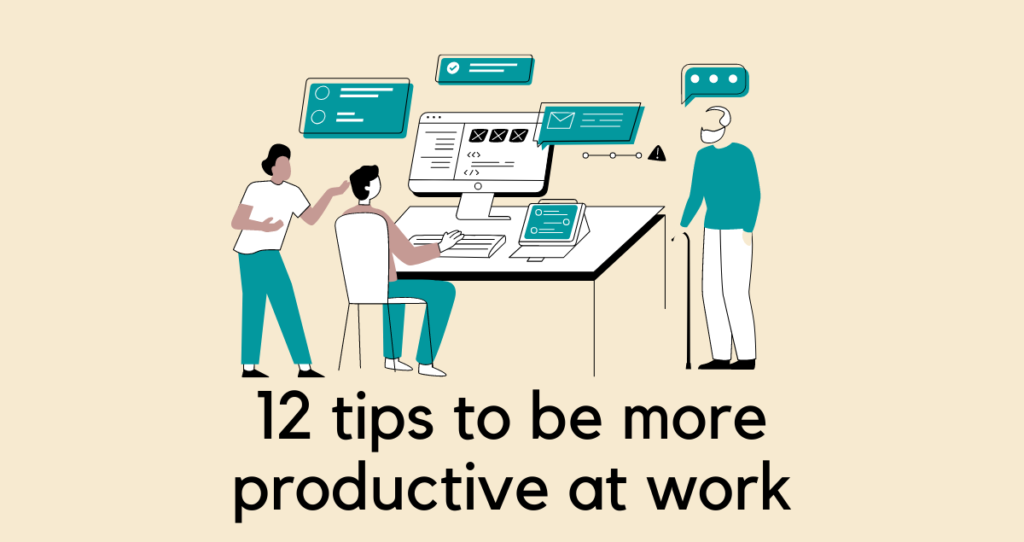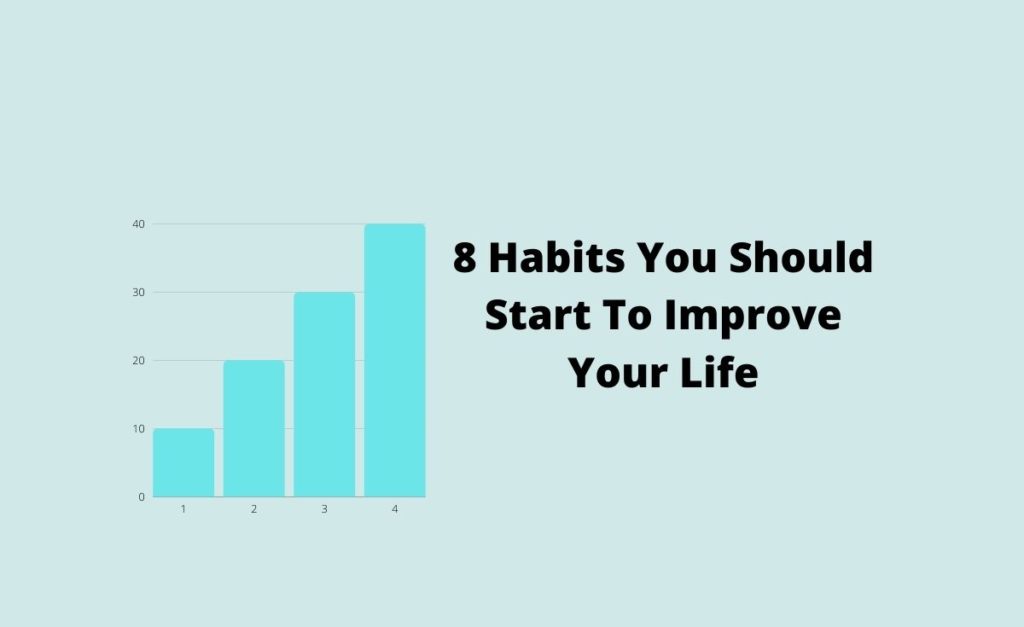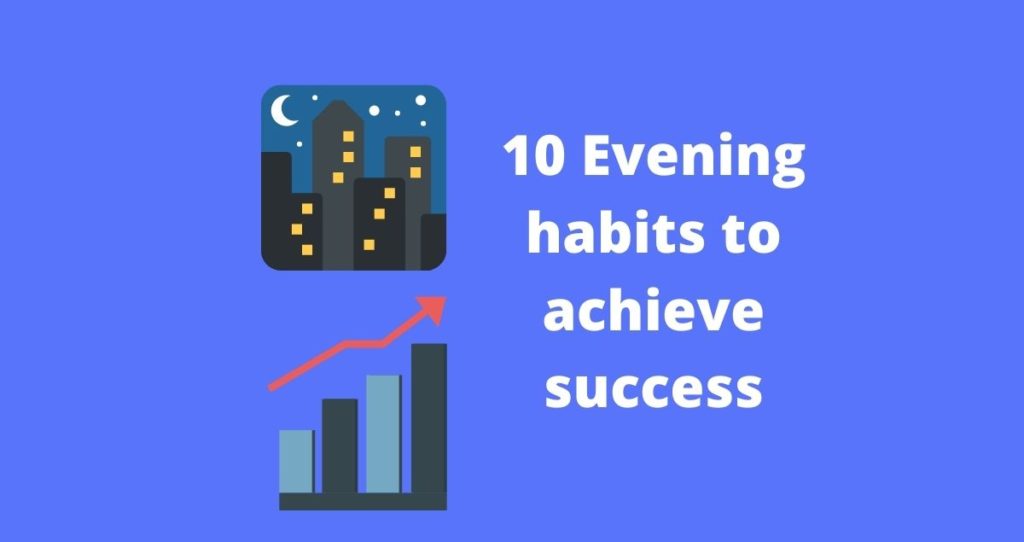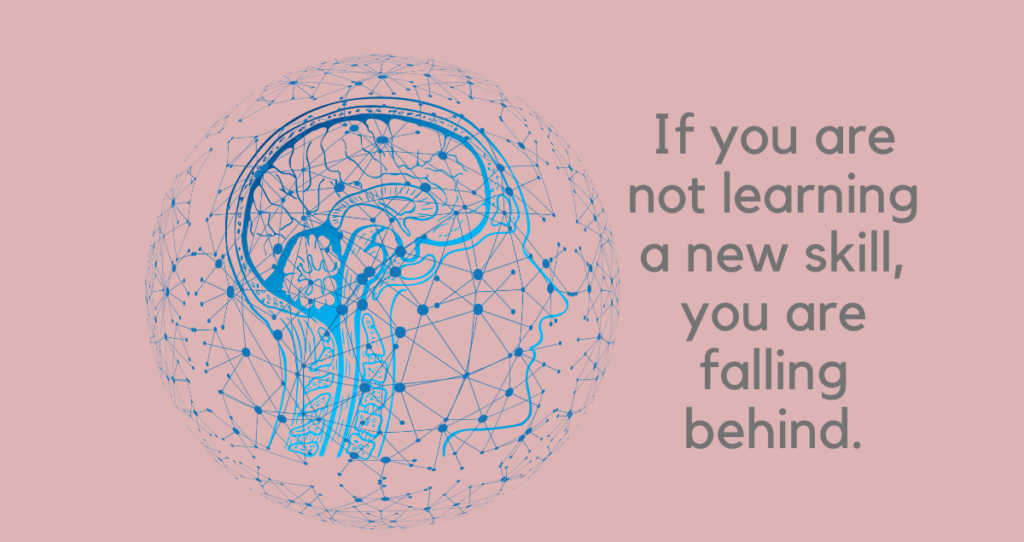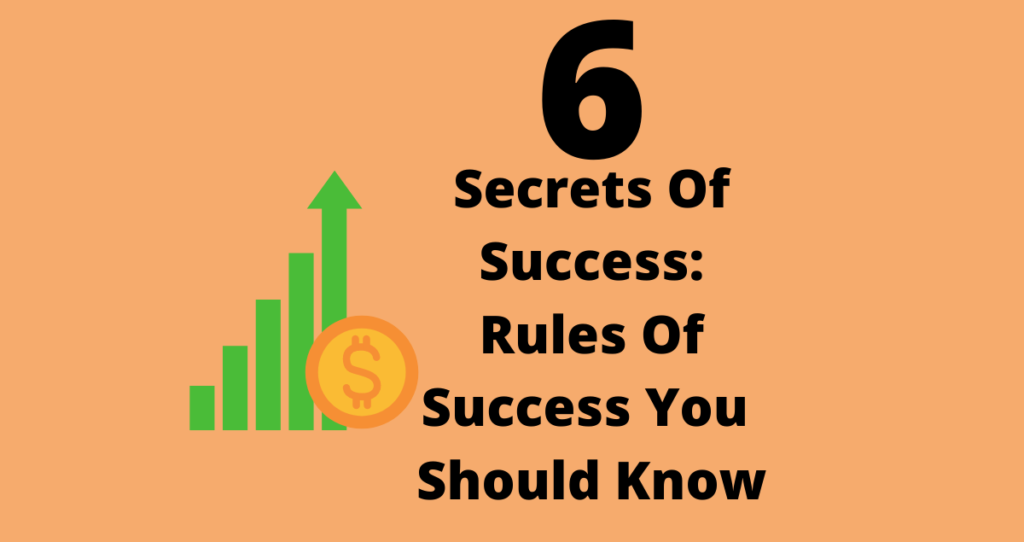In order to be productive at work, you will need to have rules and habits you set for yourself and follow them. Forget about regulations set by the company. Your company set up rules such as showing up on time, keeping up with the task, respecting others, etc., in an attempt to have everyone in check.
Most people see these rules as a punishment for being who they are (employees). So, they break them. Instead of showing up on time, they find a way to be late. It is a subconscious thing. Other employees don’t even bother doing their jobs the way they are supposed to. As long as they get paid, it does not matter how much they accomplish.
Following the company’s rules does not mean you are productive. There are many people who show up on time, respect others, try their best but end up with mediocre productivity. You can clearly see that you need something more that has nothing to do with the company. It is not what the company asks you to do. It is what you ask yourself to do.
So, how can you be more productive at work? This is where self-determination, adopting new habits, and having the desire to succeed come in. You will need to have a strategy and set rules for yourself that keep you in check.
It is not productivity that matters. It is the person you must become to be productive.
This article has all the tips and details you need to be productive all day and every day.
How to be productive at work?
The question is: Is it possible to be more productive at work? The short answer: Yes. Yes, you can be productive at work. The path to increasing productivity, however, will depend entirely on you. How you choose to approach this issue and the standards you set up for yourself will be the determining factors.
You need to adopt the workaholic mentality. Forget about your company’s rules. What are your rules?
You can become more productive at work if you choose to. If you are looking for ways to be productive at work, I have answers for you. This article has over 12 tips you can use to be more productive.
1. Have a deadline for each task
One of the best ways to be more productive is to allocate a specific time for each task. Time should be allocated based on the complexity of each task. The least important and easy tasks should have the least amount of time possible and reserve more time for complex tasks.
Your next job is to make sure that each task is completed within its given time. Failing to meet the deadline for each task will result in low productivity and a stressful work environment. If your tasks do not necessarily have to be completed in a particular sequence, you should always start with the most important tasks first.
Even if you end up missing your target, your most important task would have been completed. This will reduce the severity of missed tasks and allow your project to continue without delays.
2. Take many small breaks
Your body is made of flesh and bones and they are known to get tired over time. Your company has designated times at which you take breaks. However, you don’t necessarily have to wait 4 to 5 hours before you take a break. If taking breaks in between will increase your productivity, take them.
As you stay focused on your task, your concentration fades away due to muscle fatigue and distractions. In order to recharge your muscles and increase your concentration, it is important that you walk away from the task at hand for a few minutes. For example, you can take a small break to stretch your muscles or go for a walk.
These activities will recharge your brain, relaxes your muscles, and therefore, help you be more productive at work.
Research conducted by Jana Kühnel, from Ulm University, Ulm, Germany suggested that taking small breaks, especially in the afternoon increased employees engagement.
Engagement is the key point when it comes to increasing productivity. Take those small breaks and make them count.
3. Limit the number of choices you have to make before and during the tasks

One of the things that kill productivity in a work environment is the number of choices employees make before and when performing their tasks. If your job requires a lot of choices, tools, and many parts from different places, take the time to put everything where they are accessible when needed.
You should also avoid unnecessary steps during this process. The fewer choices you have to make, the higher your productivity will be.
A good example happens in manufacturing environments. Management, supervisors, and engineers do not make the processes of building their products easy. Sometimes employees are left to fend for themselves. If a required process does not add value to the product, customer service, safety, qualify, etc., it should not be included. Focus on simplifying the process.
By eliminating useless steps, you immediately reduce the number of choices your employees make when performing their tasks. This, in turn, lowers their level of stress and increases their performance.
This formula works in any form of employment whether in the office or in the field.
A lot of choices will rob your brain of the energy that could have been used to do the actual job. With a lot of choices, you spend your energy selecting/making choices instead of doing. As a result, you get tired and frustrated before you even finish the first task.
4. Avoid lengthy conversations with your coworkers
Length conversations at work kill productivity. Earlier I discussed that in order to be more productive at work, you must establish a deadline for each task. Unless you finished all your tasks, you should spend your available time accomplishing your daily goals instead of talking to your coworkers.
10 minutes spent with your coworkers could push your project behind for a week. So, make sure that conversations with your coworker do not go beyond “How are you doing.” You can always find a way to talk and gossip after work. But, your project cannot wait.
5. Get to work early
In order to be more productive at work, you must focus on keeping your body at rest and reducing stress. One way people mess up their days is by showing up to work late or the minute they are supposed to start working.
This is not a good practice when it comes to productivity. When you are late, your brain keeps wondering whether your boss is mad or what your coworkers think happened to you. More importantly, you keep wondering what they talked about in the meeting you just missed.
With all these questions in mind, you turn to your coworkers for answers. This in turn leads to lengthy conversations and affects you and your coworkers’ time.
Showing up late also increases your level of stress especially when you are facing a daunting deadline on a difficult project.
To stay ahead of the game, show up on time and get prepared before your shift starts. Being there at least 15 minutes before the start of your shift will serve you well.
6. Avoid stressful events or activities before you go to work
Your success at work starts way before the start of your shift. What you do at home will directly impact your concentration at work and productivity at the same time.
In order to reduce your stress level and be productive at work, avoid stressful activities at home.
For example, you should avoid arguments with your relatives, partners, spouses, or anyone, before heading to work.
You can’t have full concentration knowing that your spouse is mad at you. And for sure, you cannot increase productivity at work when your entire mind and soul are replaying the traumatic events you witnessed on your way to work.
The main point here is that you must avoid getting involved in activities that can hinder your success at work.
7. Set up a no distraction time
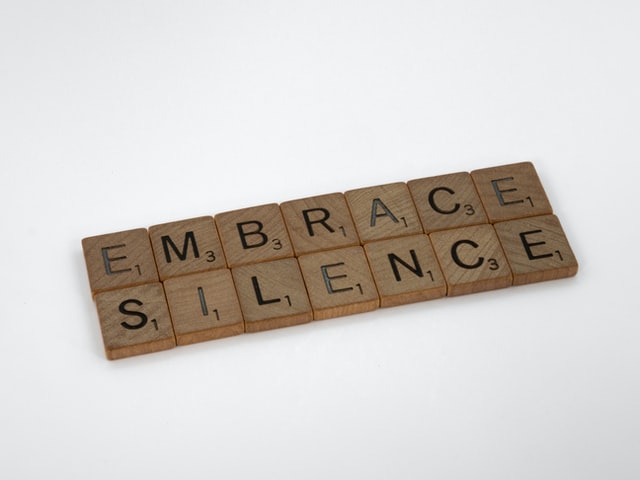
Notifications are some of the greatest killers of productivity. Ding ding. What is that? So, you grab your phone and check it out. Ahhh, it is a Facebook ad notification. 30 minutes later, ding ding. Another one? You check it out and realize that it is an email notification or someone liked your TikTok video or sent you a message.
Do you see what just happened? The first time you checked your phone and realized it was a Facebook ad, it did not take you 20 seconds to do it. After checking it, you decided to delete it and started wondering why would Facebook allow these notifications to be sent to you in the first place.
You started thinking about changing your settings, avoiding searching things, or simply deleting your account. You are probably annoyed by it. The point here is that your entire brain is focussing on the ads instead of work. Once you are in this mood, it takes some time for your brain to recharge and switch back to the original task.
When the second notification came in, you become overjoyed. Someone liked your video or wants to send you a message. So, you opened it and checked it out. Who is that person? Why would that person send me a message? What does the message say? After reading it, you get excited or annoyed. Again, it will take some time to regain your full focus and go back to doing your job.
What does the research say about this distraction?
Research conducted by Gloria Mark from the University of California, Irvine, Irvine CA, shows that it takes about 23 minutes and 15 seconds to fully switch to the original task after distractions. To compensate for the time lost, subjects work faster. This in return increases their level of stress, time pressure, and a higher level of frustration.
You can see that avoiding notifications when you are working is one of the greatest ways to be productive.
How to avoid distractions at work?
There is a number of things you can do to avoid distractions at work. The following are some tips you can rely on.
- Turn off your cellphone when you are at work
- If you cannot turn it off, put it in silence or do not disturb mode. These settings are there for you to use them
- Log out of all your social media accounts and turn off all notifications from them
- Do not leave your email account open. Have specific times to check it.
- Have a do not disturb sign at your desk. Your coworkers will not bypass this sign unless it is an emergency
- Train your brain to follow and respect these conditions
8. Avoid multitasking
I used to think that the more tasks I can tackle at the same time, the more productive I will be. I was wrong. When handling more tasks at once, some of them act as distractions. Just like we have seen in the previous point (number 7), distractions lead to low productivity. This is due to the fact that you lose valuable time when your brain is switching from one task to focusing on the other.
Multitasking can also lead to a high level of stress especially when are working on stressful tasks. What ends up happening to many people is a mediocre performance on each task.
What you can do, instead, is to work on your tasks one by one. Start with one task and finish it before starting a new one. To succeed with this strategy, you will need to divide your tasks into timeframes and make sure that you accomplish them during their designated times.
It is also important to start with the most important tasks or urgent tasks. Even if you end up leaving some tasks unfinished, your most important tasks will be completed.
9. Have a pleasant office
Your performance is as good as the office you work in. Having a good work environment, especially an office can motivate you to achieve more.
Before you start working, decorate your office with colors, pictures, chairs, and scents that motivate you to work harder and smarter. People have different preferences. Choose the ones that help you increase productivity and avoid those that cause distractions.
Being productive comes with preparation and some degree of discipline. Some people choose to hang their certifications, degrees, awards, medals, and achievement records in their offices.
These types of decorations remind them that life is tough and in order to be productive and achieve the most you have to pay the price. Follow this model and you will be surprised at how much you will accomplish.
10. Avoid crabby coworkers
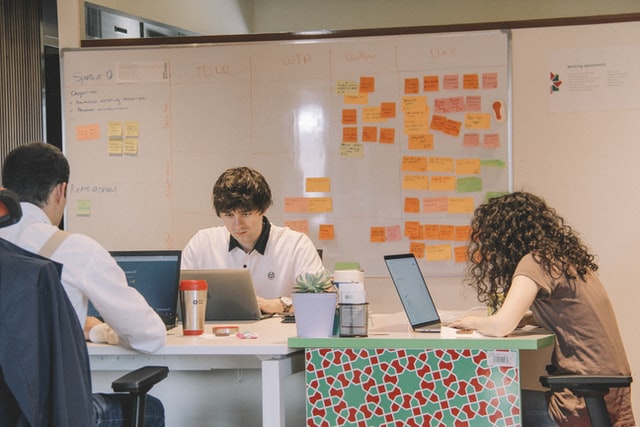
Not everyone will like you at work. And certainly, you will not like everyone. People are different due to habits, culture, behaviors, religion, etc.
The good news is that you don’t have to like your coworkers to work together. They don’t have to like you to work with you either. You are all there for one single purpose: Get the job done.
If you are not careful, however, the person you don’t like can easily destroy your day without them knowing it.
You can easily get pissed off by their jokes even if they are funny. Or maybe you saw them and your mind switched from present to angry.
To avoid this issue, stay away from people you don’t like. Of course, you don’t have to run away or avoid responding when they greet you. This could cause a whole new problem.
What you can do, however, is to limit interactions with them and keep your conversations short. You can also prepare your mind that things will be OK. After some time, you will realize that everything you go through is a result of your mindset.
So, prepare yourself ahead of time and take a deep breath when you have to. This will keep you calm and reduce conflicts with your coworkers. As a result, you will be more productive at work and have present time.
11. Ask for help on things you don’t know
There are times when you will not know the answers to the problems you are solving. Even if you have been working there for 30 years, your company could decide to make improvements in software. That means you will start learning from scratch like everyone else.
During this process, there will be problems you don’t know how to solve. Instead of spending hours trying to figure it out, ask a coworker who knows how to do it.
One of the causes of frustration at work is trying to do a job you don’t know how to do or figuring it out as you go. Many people lose it. To avoid these easy-to-fix issues, ask questions when you don’t know what you are doing.
None expects you to know everything. So, ask for answers if you want to be more productive at your workplace.
12. Have a plan for each task
A well-prepared project is easy to accomplish. Businesses and projects do not fail during their executions. Instead, they fail during their planning phases.
In order to increase productivity and achieve the best at your work, you need to be prepared beforehand. Show up on time, do a review on what you will need, and what is expected from you by the end of the day. Then, make a plan.
Kave a rough idea of how to do your job, the tools, and the resources you will need. This way, it will be like building a puzzle when you know where every piece is located. You can’t have a good time when you are struggling with each task.
If you don’t have everything, address the issue ahead of time. It is never a good idea to show up to your boss and say,” I did not perform well because I did not have this tool since morning.”
Although this could be a meaningful explanation if you addressed the problem ahead of time; your task could have been changed. They could have given you another project to work on. But do not use the lack of tools as an excuse to not work.
